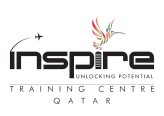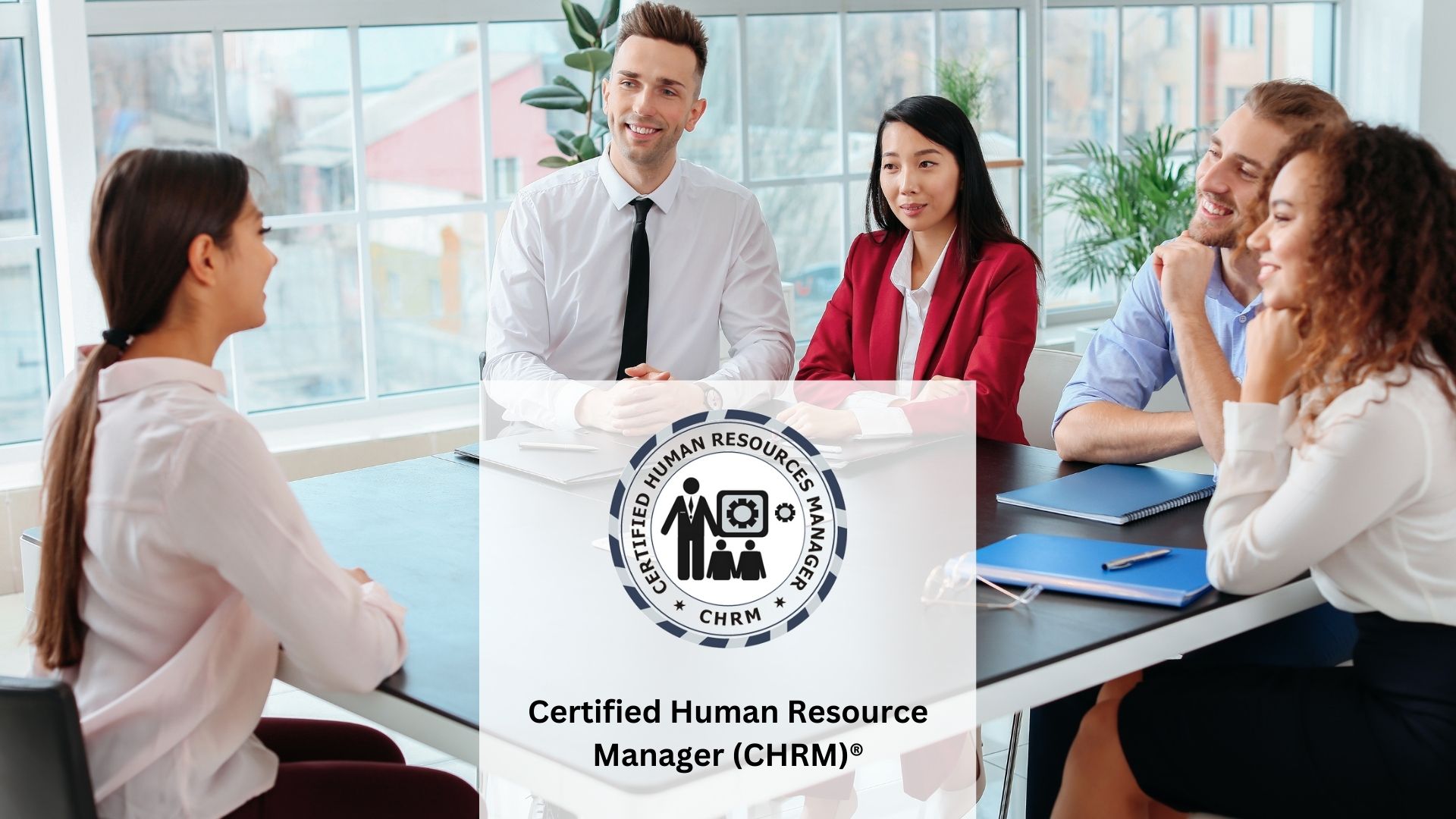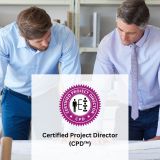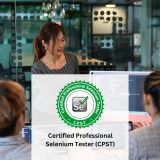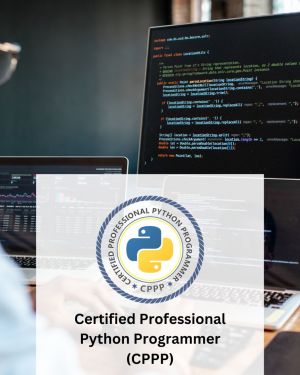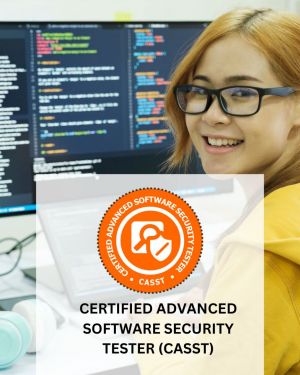The Certified Human Resources Manager (CHRM)® Certification will walk you through the hiring process, from performing a skills inventory to conducting the interview; discuss orientation; and cover some issues that arise after the hiring process (such as diversity issues, compensation, and discipline).
The human resource issues facing today’s business owners and managers. You do not always have the expertise to deal with the many employee relationship issues you face, and yet you will be expected to make decisions that are both effective and legal.
Module two of CHRM® will familiarize you with a workplace situation where a supervisor has made a decision that you didn’t agree with? Did you wish that you could ask someone else what they thought of the decision; whether they would have done the same thing? The peer review process offers employees just that chance, using a formalized procedure to ask, consider, and resolve just these sorts of questions. This one-day workshop will teach you everything you need to know about employee dispute resolution through mediation.
Organizations recognize that they do better business when their people are engaged, motivated, and yes, talented. Having the right people in place at the right time is a key aspect to continued growth, success, or even just stability. Module 3 of CHRM® will provide you with just what it takes to have the right people ready. It will help you create a program to measure the talents of your people and how to help them grow in preparation for the future. It will also help you support and grow your organization by teaching you how to apply the most current research and adapt your organization to the ever-changing marketplaces.
The Module 4 of CHRM® details with Performance reviews as they are an essential component of employee development. The performance review meeting is an important aspect of career planning, and the outcomes of the meeting should be known to the employee and supervisor before the meeting actually takes place. Remember what the German philosopher Goethe said: “Treat people as if they were what they ought to be and you help them become what they are capable of being.”
Setting goals and objectives to aim for will give both supervisors and employees a focus, and is one of the key aspects to meeting overall company objectives. Supervisors must also learn how to give feedback, both positive and negative, on a regular and timely basis so that employees can grow and develop. Performance appraisals involve all these activities.
Many people see conflict as a negative experience. In fact, conflict is a necessary part of our personal growth and development. Think of when you were trying to choose your major in college, for example, or trying to decide between two jobs. However, conflict becomes an issue when the people involved cannot work through it. They become engaged in a battle that does not result in growth. When this type of conflict arises, negative energy can result, causing hurt feelings and damage relationships. The Module 5 of CHRM® course will give participants the tools that will help you resolve conflict successfully and produce a win-win outcome.
Module 6 of CHRM® deals with Anger Management. Anger is a universal experience. Dogs get angry, bees get angry, and so do humans. You don’t have to be a psychologist to know that managing anger productively is something few individuals, organizations, and societies do well. Yet research tells us that those who do manage their anger at work are much more successful than those who don’t. The co-worker who can productively confront his teammate about his negative attitude increases his team’s chance of success as well as minimizes destructive conflicts. The customer service agent who can defuse the angry customer not only keeps her customers loyal but makes her own day less troublesome.
E-Course Duration: 30 to 35 Hours
Exam Pattern: The exam comprises 100 Multiple Choice Questions out of which the candidate needs to score 80% (80 out of 100 correct) to pass the exam.
Duration of the Exam: The total duration of the exam is 1 hour 30 minutes (90 Minutes).
Exam Format: The exam is conducted in a non-proctored mode and can be taken anytime and anywhere within an eight-month validity period.
Upon purchasing the Premium Package or an Exam Voucher Code, a voucher code with two attempts will be assigned to your login profile under the “My Vouchers” tab. You can then take the exam through the “My Exam(s)” tab in your profile. To take the exam, simply apply the voucher code.
Retaking of the exam: The Exam Voucher included in the Premium Package or purchased separately is valid for two (2) attempts. If you are unable to pass the exam within these two attempts, you can purchase a new voucher code, which will grant you an additional two attempts.
Kindly Note: The voucher will not be valid for a second attempt if you pass the exam on your first attempt.
Certification Validity: The Certified Human Resources Manager (CHRM)® Certificate is valid for life.
Course Outline
Module 1 – HR Training for the Non-HR Managers
Defining Human Resources, Skills Inventory, Forecasting, Job Analysis, Job Competencies, Position Profiles and Job Descriptions, Do You Really Need to Hire?, Finding Candidates, Advertising Guidelines, Screening Resumes, Preparing for the Interview, Conducting the Interview, After the Interview, Employee Orientation, Planning Training, Working with External Providers, Performance Reviews, Absenteeism, Diversity, Privacy Issues, Compensation and Benefits, Discipline, Termination, Exit Interviews.
Module 2 – Employee Dispute Resolution
What is Peer Review?, Initiating the Process, The Peer Review Panel, Asking Questions, The Peer Review Process, Panel Walkthrough, Why Does the Process Fail?
Module 3 – Talent Management
Talent management, performance management, and succession planning, Creating a talent management plan, Competency-based programs, Identifying talent, Conducting talent assessments, Keeping people interested, Talent review meetings, Compensation and benefits, Communicating with high potentials, Development strategies, Fostering engagement, Evaluating the plan.
Module 4 – Conducting Effective Performance Reviews
Common errors and solutions, Types of performance reviews, The performance management process, Setting standards and goals, Creating a performance development plan, Feedback and communication skills, Accepting criticism, Appraisal preparation, Planning and conducting the interview, Coaching and maintaining performance, Terminating an employee, Performance management checklists.
Module 5 – Conflict Resolution
Defining conflict and types of conflict, Spontaneous and reflective action, The Johari window, Stages of conflict, Conflict resolution style questionnaire, The role of communication in conflict resolution (including information on active listening, paraphrasing, asking questions, and body language), The conflict/opportunity test, Conflict and its resolution, Helping others through conflict.
Module 6 – Anger Management
What is anger?, Costs and pay-offs, Using an anger log, The anger process, How does anger affect our thinking?, Understanding behavior types, Managing anger, Communication tips and tricks.
Target Audience
Team Leaders, Supervisors, Human Resources Directors, Organizational Development Directors, Employees and non-HR Managers.
